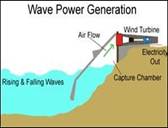
題目列表(包括答案和解析)
It is common to believe that learning just takes place in school, but much of human learning happens outside the classroom, even from birth and people continue to learn throughout their lives.
Even before they enter school, young children learn to walk, to talk, and to use their hands to use toys, food, and other objects. They use all of their senses to learn about the sights, sounds, tastes, and smells in their environments. They learn how to communicate with their parents, grandparents, siblings, friends, and other people important to their world. When they enter school, children learn subjects like reading, writing, and maths. They also continue to learn a lot outside the classroom. They learn which behaviors are likely to be rewarded and which are likely to be punished. They learn social skills for communicating with other children. After they finish school, people must learn to deal with many changes that affect their lives, such as getting married, raising children, and finding and keeping a job.
Because learning continues throughout our lives and influences almost everything we do, the study of learning is important in many different fields. Teachers need to understand the best ways to educate children. Scientists, social workers and other human service workers need to understand how certain experiences change people’s behaviors.
Learning is closely related (相關(guān)的) to memory, which is the storage(儲(chǔ)存) of information in the brain (大腦). Scientists who study memory are interested in how the brain stores knowledge, where this storage takes place, and how the brain later offers knowledge when we need it. However, scientists who study learning are more interested in behavior and how behavior changes as a result of a person’s experiences. ?
【小題1】The underlined word “siblings” in Paragraph 2 probably means _________.
| A.teachers | B.classmates | C.doctors | D.brothers or sisters |
| A.After they go into society. | B.Before they enter school. |
| C.When they are at school. | D.Before they are born. |
| A.As a matter of fact, learning begins at a person’s birth and last the whole life. |
| B.Teachers need to understand the best ways to educate their students. |
| C.People need to understand how certain experiences change their behaviors. |
| D.Social workers need to study how experiences affect people’s thoughts. |
The ocean can be a great place to swim and play, it may also be useful in another way. Some scientists think that waves could help make electricity.
“Have you ever been on a surfboard or boat and felt yourself being lifted up by a wave?” asked Jamie Taylor of the Wave Energy Group in Scotland. “There is certainly a lot of energy in waves.”
Scientists are working on using that energy to make electricity. The United States and a few other countries have started doing research on wave energy, and it is already being used in Scotland.
Most waves are created when winds blow across the ocean. “The winds start out by making little ripples (波紋) in the water, but if they keep on blowing, those ripples get bigger and bigger and turn into waves,” Taylor said. “Waves are one of nature’s ways of picking up energy and then sending it off on a journey.”
When waves come towards the coast, people can set up dams(大壩) to block the water and send it through a large wheel called a turbine(渦輪). The turbine can then power an electrical generator(發(fā)電機(jī)).
We will never run out of wave power. Besides, wave energy does not create the same pollution as oil and coal do.
Oceans cover three quarters of the earth’s surface. That would make wave power seem perfect for creating energy around the world. But there are some disadvantages that need us to pay more attention to.
Jamie Taylor said that wave power still cost too much money. He said that its influence on animals in the sea is still unknown. Besides, wave power would get in the way of fishing and boat traffic.
With more research, “Many of these problems might be solved,” Taylor said. “Finding more energy sources(資源) is very important, for traditional sources of energy like oil and gas may run out some day.”
In the future, when you turn on a light button, an ocean wave could be providing the electricity! 
【小題1】We can learn from the passage that__________________.
| A.a(chǎn)lmost every country is making use of the wave power at present |
| B.it is necessary for us to develop wave power instead of oil and coal |
| C.wave power will be sure to make some bad influence on sea animals |
| D.scientists are making efforts to find new ways of fishing and boat traffic |
| A.Why scientists are doing the research on wave power. |
| B.What experience that scientists have achieved so far. |
| C.How the wave energy forms and grows bigger. |
| D.Which countries are trying out wave power. |
| A.The writer believes that wave power will be used widely by man. |
| B.The writer doubts if wave energy can be changed into electricity. |
| C.The writer is sure the experiments will come to the end some day. |
| D.The writer thinks that wave power isn’t worth researching at all. |
| A.Sea Animals and Wave Power. |
| B.How Do We Get Wave Energy? |
| C.The Advantages of Wave Power. |
| D.Can Waves Make Electricity? |
| A.When they are poor |
| B.When they run out of oil |
| C.When they need more exercise |
| D.When there aren't any big trees in the world |
| A.2 | B.5 | C.4 | D.3 |
| A.how to run our cars |
| B.what to do when oil runs out |
| C.different types of gas |
| D.the way to make electricity |
百度致信 - 練習(xí)冊(cè)列表 - 試題列表
湖北省互聯(lián)網(wǎng)違法和不良信息舉報(bào)平臺(tái) | 網(wǎng)上有害信息舉報(bào)專(zhuān)區(qū) | 電信詐騙舉報(bào)專(zhuān)區(qū) | 涉歷史虛無(wú)主義有害信息舉報(bào)專(zhuān)區(qū) | 涉企侵權(quán)舉報(bào)專(zhuān)區(qū)
違法和不良信息舉報(bào)電話(huà):027-86699610 舉報(bào)郵箱:58377363@163.com